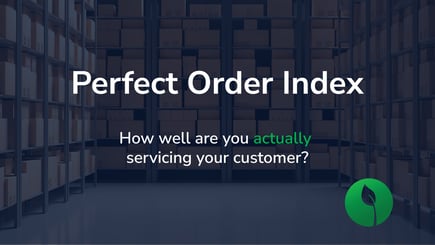
With the new year in full swing, CEO Colton Griffin provides insight on how cannabis businesses can thoughtfully plan for 2022 taxes in a recent article in Green Entrepreneur.
He breaks down IRS Rule 280e and the allowable deductions, specifically how businesses can only focus on raw materials and production labor for tax breaks. “For these tax reasons alone, you should diligently track and document your costs of goods sold (COGS) to maximize deductions and protect yourself from audits. Margins calculated by subtracting your COGS from your selling price are a fundamental metric to track over time. Doing so will help you stay competitive, as measuring progress (and failure) helps you aim better for the next business cycle.”
The article details how to track COGS to ensure accurate cost capture. “You first need to set up processes and systems to capture these costs on receipt to track your COGS. Defining clear SOPs at choke points such as intake help streamline the data capture to maximize deductions,” said Griffin. “Focus on direct raw material costs. Make sure they accumulate as you build inventory—and document them to help prove to any auditor that the IRS does not bar deductions based on these costs. Also, use the data you capture to set standard costing based on your documented history. Then compare that to actuals periodically to measure performance over time.”
“Defining clear SOPs at choke points such as intake help streamline the data capture to maximize deductions”
- Colton Griffin for Green Entrepreneur
Flourish client Jimmy Gadinas, a cannabis industry accounting consultant, encourages businesses to ensure inventory costs are converted correctly to COGS on their financials. “Most inventory tools marketed to the industry focus on compliance,” Gadinas said. “While accounting integrations are common, they can wreak havoc on the quality and accuracy of your reporting when set up or managed incorrectly.”
In addition to materials costs, Griffin notes labor is an important piece of the picture too, though can be difficult for some businesses that have employees performing multiple job functions that flow between deductible and non-deductible tasks.
“Most inventory tools marketed to the industry focus on compliance. While accounting integrations are common, they can wreak havoc on the quality and accuracy of your reporting when set up or managed incorrectly.”
- Jimmy Gadinas, Cannabis Industry Accounting Consultant
Griffin recommends building a process over time and just getting started. “Start simple, and then get more detailed. Explore implementing a time and attendance system to clock in and out of job functions to get more specific with how employees allocate their time. Automating administrative tasks like data entry will reduce indirect costs.”
To read the full article, click here.




